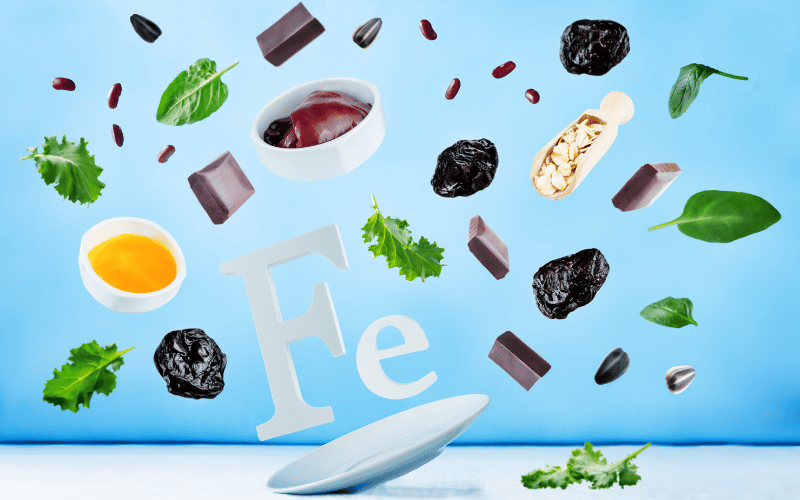Frequently Asked Questions About Iron-Rich Foods

1. Why is iron important for our bodies?
Iron is an essential mineral that plays a crucial role in transporting oxygen in the blood through hemoglobin, a protein found in red blood cells. It also contributes to energy production, immune function, and DNA synthesis. An adequate iron intake is necessary for overall health and well-being.
2. What are the symptoms of iron deficiency?
Iron deficiency can lead to anemia, which may cause symptoms like fatigue, weakness, pale skin, dizziness, shortness of breath, cold hands and feet, brittle nails, and an increased susceptibility to infections. If you suspect iron deficiency, it’s important to consult a healthcare professional for proper diagnosis and treatment.
3. How much iron do I need daily?
The recommended daily iron intake varies depending on age, sex, and life stage. Adult men typically need about 8 milligrams per day, while adult women aged 19-50 require 18 milligrams daily. Pregnant women need 27 milligrams, and lactating women require 9-10 milligrams per day. Children and adolescents have different iron needs based on their age and growth stage.
4. Are there different types of iron in foods?
Yes, there are two types of iron found in foods: heme iron and non-heme iron. Heme iron is found in animal-based foods, such as meat, poultry, and fish, and is absorbed more efficiently by the body. Non-heme iron is found in plant-based foods like legumes, grains, and vegetables, and its absorption can be influenced by other dietary factors.
5. How can I improve iron absorption from plant-based foods?
To enhance iron absorption from plant-based foods, pair them with vitamin C-rich foods like bell peppers, tomatoes, or citrus fruits. Vitamin C helps increase non-heme iron absorption by reducing it to a more soluble form. Avoiding excessive intake of calcium, phytates, and tannins, which can inhibit iron absorption, can also be beneficial.
6. Can I get enough iron from a vegetarian or vegan diet?
Yes, it’s possible to meet your iron needs on a vegetarian or vegan diet by consuming a variety of iron-rich plant-based foods like lentils, beans, tofu, quinoa, and fortified cereals. However, because non-heme iron is less efficiently absorbed than heme iron, vegetarians and vegans may need to consume more iron overall to meet their daily requirements. Pairing iron-rich plant foods with vitamin C can also help increase iron absorption.
Conclusion: Boost Your Iron Intake with These Iron-Rich Foods
Incorporating these iron-rich foods into your diet can help ensure you maintain adequate iron levels and support your overall health. From plant-based options like spinach, lentils, and quinoa to animal-based sources like red meat, shellfish, and turkey, there’s an iron-rich food option for everyone.
Remember to pair these iron-rich foods with vitamin C-rich foods to maximize iron absorption and get the most out of their nutritional benefits. By making a conscious effort to include these foods in your meals, you can prevent iron deficiency and enjoy a healthier, more energetic life.